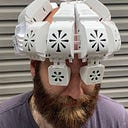Why Organizations Should Never Use DISC To Hire or Promote

Recently, my wife and I bought a house. Through the process, I spent a lot of time talking to the lender who was helping us determine what type of loan will should get for our home. We often spent 10 minutes talking about our mortgage, and another 20 minutes talking about our professions and experiences. It was through these conversations that we had a discussion about DISC.
Our lender’s company recently held a Take Flight with DISC training, and he casually mentioned that a person in the organization found out that they had a S-Style of the DISC Personality Scale and they were skipped over for a promotion. I was both stunned and concerned.
The DISC Model was theorized almost a century ago by a man named William Moulton Marston. Marston’s theory was that we can better understand a person by looking at analyzing two aspects of a person’s emotions (behavior):
- A person’s level of activity (Are you assertive, or are you more cautious)
- How a person approaches their environment (Are you skeptical, or are you reflective)
Testing for these two dimensions tell us more about someone than not using any testing, but do we really believe that we can make a decision about who a person is by only identifying a small part about them?
After all, behavior is only one part of a person. Identifying this part of a person’s behavior doesn’t help us understand their cognitive or emotional intelligence. It doesn’t account for their values or interests. If we only use DiSC when discussing a promotion or hiring someone we are left with looking through a tiny pinhole while trying to see the full picture.
My experience with DiSC is from using the Everything DiSC model that is published by Wiley. This training focuses on how we should adapt our behaviors to meet the needs of different situations. However, here is an organization that used the model to deter someone from moving up in their career,
DiSC like other psychometric assessments (MBTI, Strengths Finders, Big Five, Team Dimensions) are wonderful resources that help us learn about ourselves and others. The assessments are always self-scored, and they provide our view of ourselves. They give us a way to look ourselves objectively.
I struggle to understand why we continue to rely on such a simple models when we are determining if a person should join our organization or advance in their career. After all, all of these models aren’t validated for selection (hiring or promotion), they are validated for training.
Human analytics is starting to enter the workplace. If used correctly, we will be able to identify our individual strengths and be able to place them within a part of the organization to maximize our effectiveness.
Ray Dalio gives us a small insight into how his hedge-fund, Bridgewater, combines psychometric testing to improve how they make decisions. What’s clear from his perspective is that they try to understand as many parts of a person as possible. Only using an assessment like DiSC will never fully allow us to understand the whole person.
